As I meet Lobsang Jamgyang, Director of the Tong-Len organisation, he immediately takes the initiative. Where I should be interviewing him, he makes sure that I am at ease. He seems genuinely interested, and offers words of encouragement.
When I turn the discussion to Tong-Len School, however, he is filled with passion and speaks with authority on the nature of the work they are doing. Tong-Len is a Tibetan NGO that uplifts impoverished members of the Indian community.
It all started in 2002 when Lobsang Jamyang first met the people of the slums of Dharamshala. We see some of them every day, begging in the streets. Where so many others had seen the need, and had passed it by, he was drawn to the people. At first he helped out where he could, getting to grips with the sheer size of the problem. Then he became convinced that while there was a place for charity it would not make an impact on the mindset of the beneficiaries and hence make no lasting change. He reasoned that only education could transform the community.
With a group of like-minded companions Lobsang Jamyang started the Tong-Len Charitable Trust in 2004. It had two objectives: firstly to uplift the lives of the slum population, and secondly to thank the Indian community who had taken in the Tibetans in the time of their exile.
Since then Tong-Len has grown and the vision has expanded with it. There are now four programmes under way: education services, of which the school is an important part; health services,slum welfare and education and awareness of ethical development.
When the education services programme started out, the community was skeptical about the idea. Parents believed that their children should first pursue survival and only then think of luxuries such as education. After all, their living conditions are very poor with high rates of malnutrition, sickness and domestic violence and children were seen as an important source of the family’s income. Lobsang Jamyang tells the story of how he went to parents with an Indian magazine, and showed them pictures of beautiful homes and happy families. “We will make your children live like this,” he promised. When parents said that they were the victims of bad karma, he replied that they needed to build good karma by giving their children a better future.
To gain community support for the children’s education, Tong-Len made three commitments: the community would receive free health care; parents would be paid Rs150 per month while their children went to school and food would be provided to those in need. With these in place, parents assented to having their children go to school. In 2014, the payments to parents stopped in the light of the demonstrated successes of the education programme.
The pre-school programme is run in the community. The hostel houses around 200 children. Children maintain ties with their families and go home regularly. A key element in the education of students is the Secular Ethics teachings of His Holiness the Dalai Lama which have been taught to students since 2014 to very good effect. “Our children are different to others,” Lobsang Jamyang boasts.
The programme has transformed many children’s lives. At the moment the formal education programme has 333 children, including Tong-Len school students, tertiary students and students attending other schools. They have reached the point where a number of students have completed their high school education; many of them have continued to tertiary studies, with continued support from the NGO. Some students have graduated from university and these former students are now transforming the community from the inside, just as Lobsang Jamyang envisaged 15 years ago.
Health services are currently provided for more than 5,000 people in the greater Dharamshala area, this includes general clinics and hospital referrals. Vaccination is available, making a significant impact on the incidence of preventable diseases. Family planning is reducing the number of children per household.
Slum welfare encompasses a package of services aimed at empowering the people. Social empowerment enables them to access government services such as ID cards and rations and opens the door to the formal economy such as bank accounts. Women’s empowerment and economic empowerment includes initiatives such as introducing sustainable income generation programmes.
Students proposed a programme for Education and Awareness of Ethical Development in 2016 and it launched in 2017, based on the Secular Ethics taught at the school and there is engagement with other schools to widen the availability of this programme. The organisation also had billboards painted throughout Dharamshala to raise awareness of Secular Ethics.
The organisation boasts 47 staff members, but it can always do with help from volunteers. Lobsang Jamyang mentions that they have a need for a video editor, but other skills such as web designers, health workers, teachers, writers, event organisers and researchers are all in demand. There is also a sponsorship scheme for students.
Lobsang Jamyang concludes, “The success of the programmes of Tong-Len is all thanks to His Holiness the Dalai Lama, the Dalai Lama Trust and Tong-Len partner charities in the UK and France, as well as individual sponsors and supporters. On behalf of all the community members and the organisation, we would like to thank His Holiness the Dalai Lama and all the supporters of Tong-Len for making our work possible.”




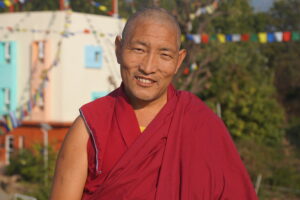
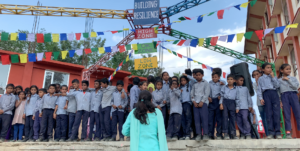
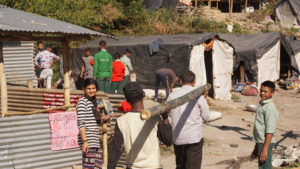
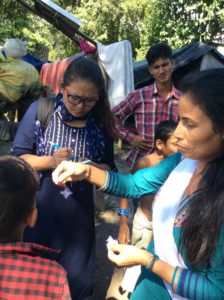
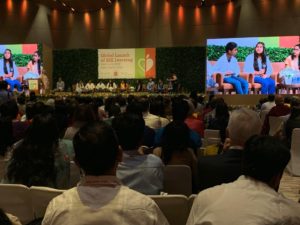
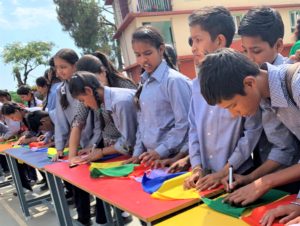
 Print
Print Email
Email













